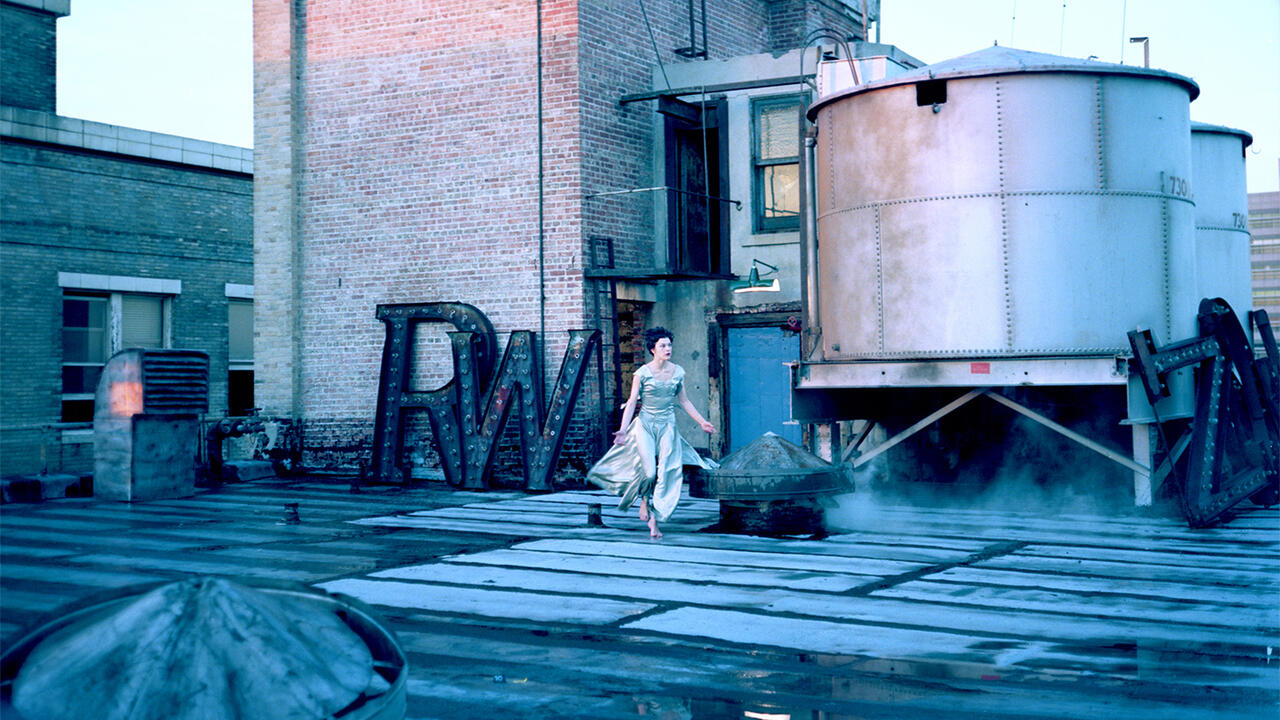The Death of Daddy
Two comedies from the recent Toronto International Film Festival highlight the relationship change between TV and cinema
Two comedies from the recent Toronto International Film Festival highlight the relationship change between TV and cinema

It used to be considered a step up from television to movies. Television was the nemesis of a movie business unsure how to react to the success of sitcoms and teleplays. Yet today we know that story came with an unexpected ending: in terms of creativity, TV is now outshining cinema and whomever makes it in quality serial narration is definitely on the right track. So it may seem counterintuitive that Louis C.K., who spells his name ‘Louie’ in his celebrated TV sitcom, has now ventured on to the big screen. I Love You, Daddy (2017) which premiered at Toronto International Film Festival (TIFF) last week, is a conscious nod to the classic Hollywood of the silver-screen era and the golden years of wisecracking and eros-by-allusion, but the studio-movie look of the title sequence is a red herring. I Love You, Daddy is not really about nostalgia, but rather about the two artistic models that came after the movie-making of Irving Thalbergs MGM-factory and other more glam-and-gangster studios.

With the decline of Hollywood studios in the 1960s, we entered a new era of the movie maker as individual genius, and later, to the pilot-submitting TV producer – at the mercy of executives with only ratings on their mind. Both types figure in Louis C.K.’s pastiche, and it adds to the poignancy that he personally plays Glenn Topher, a guy who is currently working on a show about nurses. Topher is a big name in his field, but he gets his comeuppance when his daughter, China (at 17 years of age still legally a minor, but obviously initiated to more ‘adult’ experiences at an extended spring break in Florida), falls under the spell of Leslie Goodwin, the most renowned filmmaker of his generation, who seems to be modelled on Martin Scorsese or Woody Allen. But Goodwin, with his shaved head and piercing goatee, is quite the opposite of a nervy, fast-talking film nerd. He is a decadent orientalist, and an ambiguous seducer. Not at all the right company for a teenage blonde who sleeps in a bikini.
I Love You, Daddy was reportedly shot in secret, with a small cast of friends and supporters of Louis C.K.’s self-reflective vision of troubled parenthood and anxious creativity. The standout performance is by John Malkovich, who has often played crap roles over the last few years. At certain moments Goodwin seems almost like a parody of an older model of artistic genius – such as Gustav Klimt, whom Malkovich played in a biopic in 2006. The brillant twist in I Love You, Daddy comes with the fact that the arrogant, creepy prick Goodwin gets redeemed as a moral subject, which in a way is still a tribute to the somewhat quaint notion that cinema is about ideas while television is about entertainment only.

The success of so many quality TV shows over the past few years has probably had the strongest impact in the field of acting. In Toronto this could best be seen in a very funny comedy based on a French comic book. The Death of Stalin, directed by Armando Iannucci – the creator of political satires The Thick of It and Veep – tells of the turmoil in the inner sanctums of the Soviet Union high command after the Communist leader passes away. ‘Niki’ Nikita Krushchev (played with Bugs Bunny-esque vigour by Steve Buscemi) seizes the moment and manages to outmanoeuver Chief of Secret Police Lavrentiy Beria (Simon Russell Beale), a nasty piece of work who would have probably have worsened the reign of terror of Stalin, even in his pomp. The entire cast produces compelling performances and manage to add the salt of grief (not for Stalin but his victims) to this take on a crucial moment in world history. The most delightful part comes from Jeffrey Tambor, who plays Georgy Malenkov, the vain and stupid (and, in his white uniforms, plain ridiculous) front man to the back room backstabbings. Tambor is best known from the TV show Transparent, where he played Maura Pfefferman, a father and husband who comes out as a woman after his kids have (more or less) grown up. The blurring of Maura and Malenkov, as it is inevitable for anybody who has ever seen Tambor in Transparent, echoes the blurring of Niki Krushchev and Nucky Thompson – the character Buscemi played in Boardwalk Empire, a gangster saga which also gives resonance to the cleaning out after Stalin.
Since, on the whole, they stay with us longer than their big screen counterparts, TV characters can come to seem like they’re part of the family. For actors, this can cause a problem, as became apparent with Peter Dinklage who at TIFF starred in the psychological drama Three Christs directed by Jon Avnet. Dinklage now seems inextricably tied to the enlightened cynicism beholden to the character of ‘the imp’ he plays in Game of Thrones. His attempt to enter a new field of seriousness, by playing a man who thinks he is Jesus of Nazareth, seems ill-fated as this delusion pales in comparison to the cartoonish vainglory of his character in the epic TV show. The transition from television to movies still is a step. Yet as TIFF 2017 shows, TV now is no longer the lower step, rather the stepping stone from which artistic attempts of all kinds can take off.
The Toronto International Film Festival ran 7 - 17 September.
Main image: Armando Iannucci, The Death of Stalin, 2017, film still. Courtesy: TIFF























